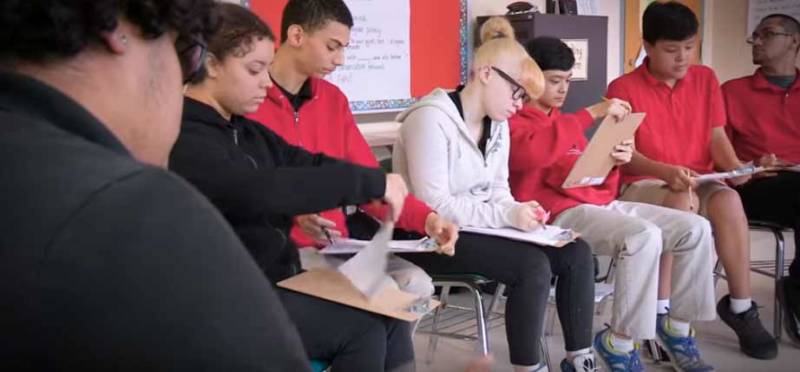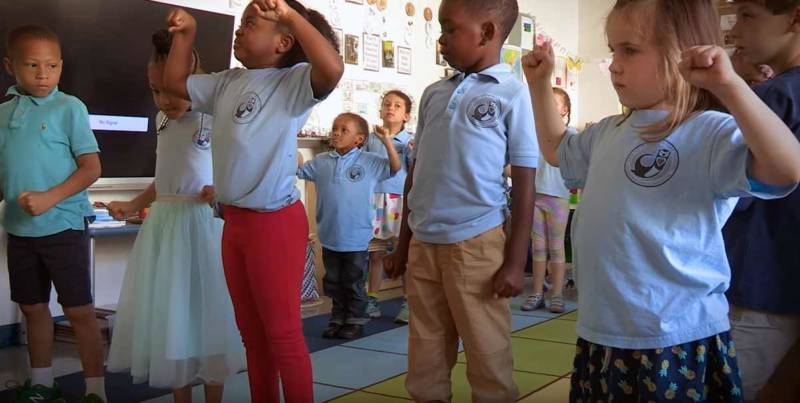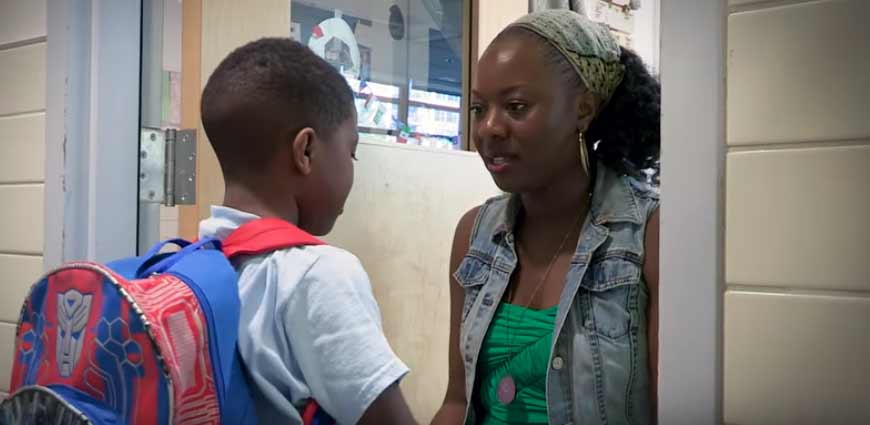KQED MindShift Features Edutopia Series How Learning Happens

MindShift, a multimedia production of San Francisco NPR affiliate KQED News, highlighted practices from Edutopia’s How Learning Happens in blog articles by Katrina Schwartz.
How Learning Happens is a series of 23 videos showcasing teaching practices, grounded in the science of learning and development, that educators can use in their classrooms right away. The series features expertise in science and practice from Turnaround for Children Founder and Senior Science Advisor, Pamela Cantor, M.D., and Learning Policy Institute President and CEO Linda Darling-Hammond, Ed.D.
Blogs Feature Quotes from Pamela Cantor, M.D.
“Giving Students Stepping Stones For Participation To Lift Up Their Voices,” published on March 1, describes strategies to engage reticent students in academic dialogue, and quotes Dr. Cantor:
“Everything about activating a child’s cognitive skills begins with activating their social connectedness,” said Dr. Pamela Cantor, Founder and Senior Science Advisor for Turnaround for Children in an Edutopia video series on applying the science of learning. “Verbalizing and using language, and working with peers creates that kind of social stimulus that drives the development of the brain.”
“Movement And Breathing Breaks Help Students Stay Focused On Learning,” published on March 3, describes practices for increasing physical movement and mindfulness in students from the Edutopia series.

Dr. Cantor was quoted from the How Learning Happens video “Activating the Brain with Movement Breaks:”
“This idea of children sitting for long periods of time, they aren’t naturally wired to do that,” said Dr. Pamela Cantor, Founder and Chief Science Advisor of Turnaround for Children in an Edutopia video series on the science of learning. “So rather than put them in a position where they have to act out to demonstrate that they need to be able to move, building in movement breaks means that they will get some of the stress relief, some of the energy release that they need in order to be able to get calm again and pay attention to learning.”

On March 20, KQED MindShift published “Why Schools Should Be Organized To Prioritize Relationships,” also authored by Katrina Schwartz, which focuses on the Edutopia How Learning Happens video “The Power of Relationships.” The article includes this quote from Dr. Cantor:
“What’s most interesting is a child can become a productive and engaged learner from any starting point, as long as we intentionally build those skills.”

Share This Story